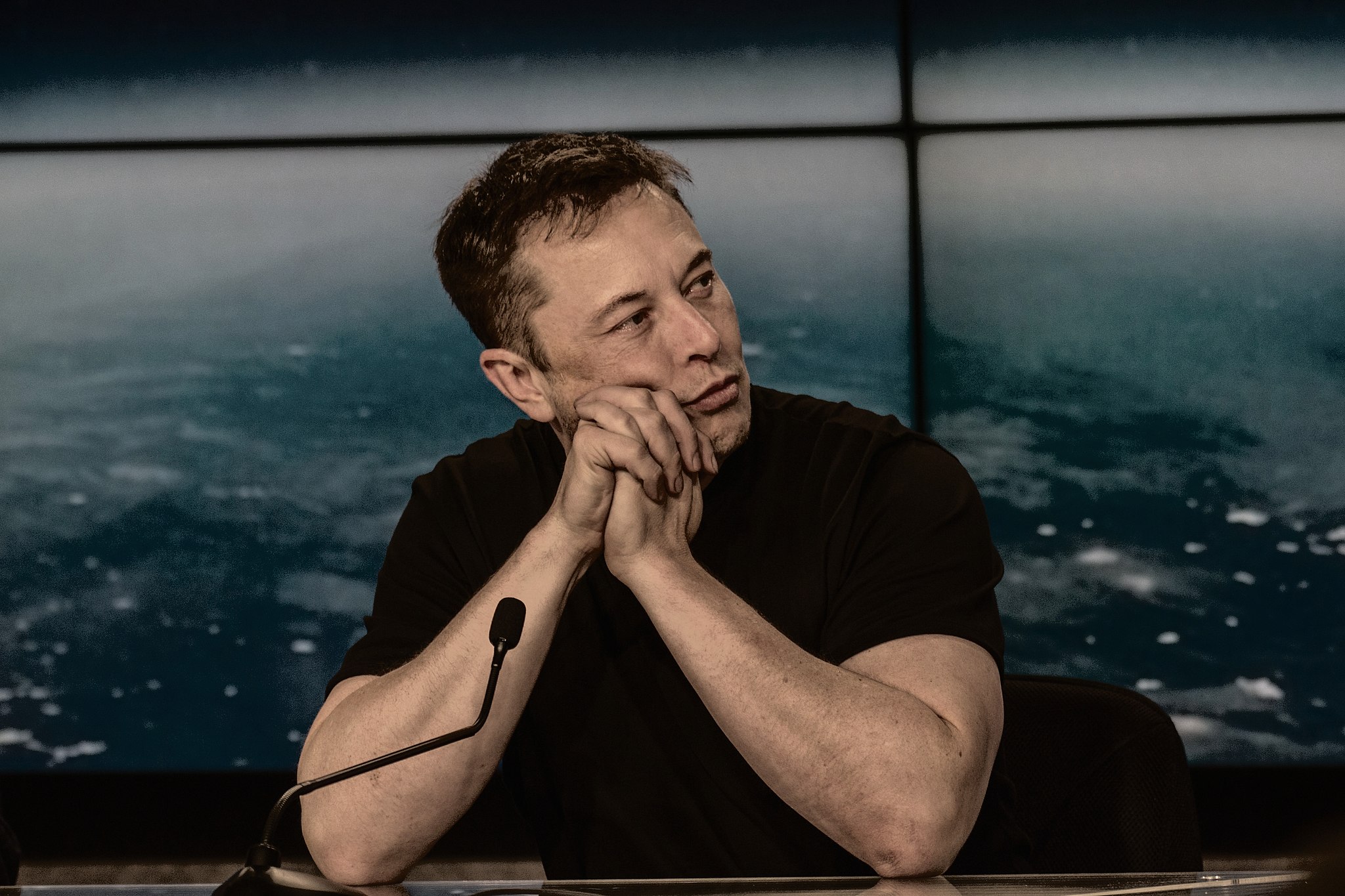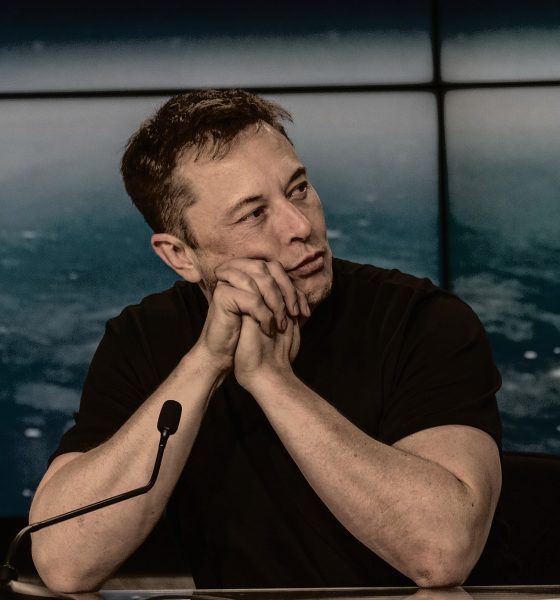

Investor's Corner
Major Tesla shareholder criticizes Elon Musk amidst pay vote
One of Tesla’s largest individual shareholders has spoken out against CEO Elon Musk and his stake in the company, as investors vote on the CEO’s recently rejected 2018 pay package.
After a Delaware judge ruled in favor of a shareholder in a lawsuit in January, officially voiding Musk’s 2018 compensation package worth $55.8 billion, Tesla is now holding an investor vote over whether to approve or deny the pay plan as part of its upcoming Annual Shareholder’s Meeting. Musk has also requested a new compensation package with more stock, and thus, more voting control, even threatening to develop artificial intelligence elsewhere if he doesn’t get them.
Leo KoGuan, who is one of Tesla’s largest individual stakeholders, posted on X on Friday criticizing Musk for selling shares over the last few years, despite his asking for more voting control as part of the ongoing compensation vote. KoGuan also called Musk a “magician,” his supporters “brainless suckers,” and he referred to the proposed package as a “robbery attempt.”
He also notes that, although Musk has sold around $39 billion Tesla shares since the stock peaked in 2021, he still has a 13.4-percent stake in the company, although he wants an additional 10 percent. KoGuan says that he paid significantly more for his very small amount of shares in the company, amounting to around $3.5 billion for just 0.8 percent of the company’s shares.
Paid $3.5 billion for measly 0.8% of Tesla in the market. What is your skin in Tesla? Whereas the Magician is minus -$39 billion and already got 13.4% of Tesla. Robbery of ten thousand years! But he wanted 10% more. Brainless SUCKERS cluelessly are assisting this robbery attempt. https://t.co/SxGfrbjtCY
— KoGuan Leo (@KoguanLeo) May 5, 2024
The statements followed a similar post made by KoGuan just 20 minutes earlier, in which he claimed that Tesla’s mission to accelerate the world’s transition to sustainable energy was just a “ruse to suck in naive investors and engineers.” He followed up with another post blatantly saying shareholders should vote no:
https://twitter.com/KoguanLeo/status/1786942715411972167
This isn’t the first time that KoGuan has been critical of Musk, though he was generally a supporter of the Tesla CEO just a few years ago. KoGuan said last month that Musk should consider “fading away and appointing his replacement” if he isn’t willing to spend more time on Tesla. He also said in January that Musk is “killing shareholders and Tesla,” adding that he wouldn’t have invested in the company had he known this before.
Voting on the package and other proposals began when Board Chair Robyn Denholm filed the company’s proxy statement. Tesla and Denholm have both expressed support for the ratification of Musk’s pay package, as well as for the company’s intent to move incorporation from Delaware to Texas.
“We do not agree with what the Delaware Court decided, and we do not think that what the Delaware Court said is how corporate law should or does work,” Denholm wrote in the filing. “So we are coming to you now so you can help fix this issue—which is a matter of fundamental fairness and respect to our CEO.”
Tesla will hold its Annual Shareholder Meeting on June 13, and shareholders can vote on ratifying Musk’s 2018 pay plan between now and then. The company has also launched a dedicated web page detailing how to cast shareholder votes and suggesting that investors vote yes on two proposals, which you can see here. You can also find Tesla’s full proxy statement here.
What are your thoughts? Have you voted on Tesla’s Shareholder Meeting proposals yet? Let me know how you voted at zach@teslarati.com, find me on X at@zacharyvisconti, or send us tips at tips@teslarati.com.

Investor's Corner
Tesla gets tip of the hat from major Wall Street firm on self-driving prowess
“Tesla is at the forefront of autonomous driving, supported by a camera-only approach that is technically harder but much cheaper than the multi-sensor systems widely used in the industry. This strategy should allow Tesla to scale more profitably compared to Robotaxi competitors, helped by a growing data engine from its existing fleet,” BoA wrote.

Tesla received a tip of the hat from major Wall Street firm Bank of America on Wednesday, as it reinitiated coverage on Tesla shares with a bullish stance that comes with a ‘Buy’ rating and a $460 price target.
In a new note that marks a sharp reversal from its neutral position earlier in 2025, the bank declared Tesla’s Full Self-Driving (FSD) technology the “leading consumer autonomy solution.”
Analysts highlighted Tesla’s camera-only architecture, known as Tesla Vision, as a strategic masterstroke. While technically more challenging than the multi-sensor setups favored by rivals, the vision-based approach is dramatically cheaper to produce and maintain.
This cost edge, combined with Tesla’s rapidly expanding real-world data engine, positions the company to scale robotaxis far more profitably than competitors, BofA argues in the new note:
“Tesla is at the forefront of autonomous driving, supported by a camera-only approach that is technically harder but much cheaper than the multi-sensor systems widely used in the industry. This strategy should allow Tesla to scale more profitably compared to Robotaxi competitors, helped by a growing data engine from its existing fleet.”
The bank now attributes roughly 52% of Tesla’s total valuation to its Robotaxi ambitions. It also flagged meaningful upside from the Optimus humanoid robot program and the fast-growing energy storage business, suggesting the auto segment’s recent headwinds, including expired incentives, are being eclipsed by these higher-margin opportunities.
Tesla’s own data underscores exactly why Wall Street is waking up to FSD’s potential. According to Tesla’s official safety reporting page, the FSD Supervised fleet has now surpassed 8.4 billion cumulative miles driven.
Tesla FSD (Supervised) fleet passes 8.4 billion cumulative miles
That total ballooned from just 6 million miles in 2021 to 80 million in 2022, 670 million in 2023, 2.25 billion in 2024, and a staggering 4.25 billion in 2025 alone. In the first 50 days of 2026, owners added another 1 billion miles — averaging more than 20 million miles per day.
This avalanche of real-world, camera-captured footage, much of it on complex city streets, gives Tesla an unmatched training dataset. Every mile feeds its neural networks, accelerating improvement cycles that lidar-dependent rivals simply cannot match at scale.
Tesla owners themselves will tell you the suite gets better with every release, bringing new features and improvements to its self-driving project.
The $460 target implies roughly 15 percent upside from recent trading levels around $400. While regulatory and safety hurdles remain, BofA’s endorsement signals growing institutional conviction that Tesla’s data advantage is not hype; it’s a tangible moat already delivering billions of miles of proof.
Elon Musk
SpaceX IPO could push Elon Musk’s net worth past $1 trillion: Polymarket
The estimates were shared by the official Polymarket Money account on social media platform X.

Recent projections have outlined how a potential $1.75 trillion SpaceX IPO could generate historic returns for early investors. The projections suggest the offering would not only become the largest IPO in history but could also result in unprecedented windfalls for some of the company’s key investors.
The estimates were shared by the official Polymarket Money account on social media platform X.
As noted in a Polymarket Money analysis, Elon Musk invested $100 million into SpaceX in 2002 and currently owns approximately 42% of the company. At a $1.75 trillion valuation following SpaceX’s potential $1.75 trillion IPO, that stake would be worth roughly $735 billion.
Such a figure would dramatically expand Musk’s net worth. When combined with his holdings in Tesla Inc. and other ventures, a public debut at that level could position him as the world’s first trillionaire, depending on market conditions at the time of listing.
The Bloomberg Billionaires Index currently lists Elon Musk with a net worth of $666 billion, though a notable portion of this is tied to his TSLA stock. Tesla currently holds a market cap of $1.51 trillion, and Elon Musk’s currently holds about 13% to 15% of the company’s outstanding common stock.
Founders Fund, co-founded by Peter Thiel, invested $20 million in SpaceX in 2008. Polymarket Money estimates the firm owns between 1.5% and 3% of the private space company. At a $1.75 trillion valuation, that range would translate to approximately $26.25 billion to $52.5 billion in value.
That return would represent one of the most significant venture capital outcomes in modern Silicon Valley history, with a growth of 131,150% to 262,400%.
Alphabet Inc., Google’s parent company, invested $900 million into SpaceX in 2015 and is estimated to hold between 6% and 7% of the private space firm. At the projected IPO valuation, that stake could be worth between $105 billion and $122.5 billion. That’s a growth of 11,566% to 14,455%.
Other major backers highlighted in the post include Fidelity Investments, Baillie Gifford, Valor Equity Partners, Bank of America, and Andreessen Horowitz, each potentially sitting on multibillion-dollar gains.
Elon Musk
Elon Musk hints Tesla investors will be rewarded heavily
“Hold onto your Tesla stock. It’s going to be worth a lot, I think. That’s my bet,” Musk said.

Elon Musk recently hinted that he believes Tesla investors will be rewarded heavily if they continue to hold onto their shares, and he reiterated that in a new interview that the company released on its social accounts this week.
Musk is one of the most successful CEOs in the modern era and has mammothed competitors on the Forbes Net Worth List over the past year as his holdings in his various companies have continued to swell.
Tesla investors, especially those who have been holding shares for several years, have also felt substantial gains in their portfolios. Over the past five years, the stock is up over 78 percent. Since February 2019, nearly seven years ago to the day, the stock is up over 1,800 percent.
Musk said in the interview:
“Hold onto your Tesla stock. It’s going to be worth a lot, I think. That’s my bet.”
Elon Musk in new interview: “Hold on to your $TSLA stock. It’s going to be worth a lot, I think. That’s my bet.” pic.twitter.com/cucirBuhq0
— Sawyer Merritt (@SawyerMerritt) February 26, 2026
It’s no secret Musk has been extremely bullish on his own companies, but Tesla in particular, because it is publicly traded.
However, the company has so many amazing projects that have an opportunity to revolutionize their respective industries. There is certainly a path to major growth on Wall Street for Tesla through its various future projects, including Optimus, Cybercab, Semi, and Unsupervised FSD.
- Optimus (Tesla’s humanoid robot): Musk has discussed its potential for tasks like childcare, walking dogs, or assisting elderly parents, positioning it as a massive long-term driver of company value.
- Cybercab (Tesla’s robotaxi/autonomous ride-hailing vehicle): a fully autonomous vehicle geared specifically for Tesla’s ride-sharing ambitions.
- Semi (Tesla’s electric truck, with mentions of expansion, like in Europe): brings Tesla into the commercial logistics sector.
- Unsupervised FSD (Full Self-Driving software achieving full autonomy without human supervision): turns every Tesla owner’s vehicle into a fully-autonomous vehicle upon release
These projects specifically are some of the highest-growth pillars Tesla has ever attempted to develop, especially in Musk’s eyes, as he has said Optimus will be the best-selling product of all-time.
Many analysts agree, but the bullish ones, like Cathie Wood of ARK Invest, are perhaps the one who believes Tesla has incredible potential on Wall Street, predicting a $2,600 price target for 2030, but this is not even including Optimus.
She told Bloomberg last March that she believes that the project will present a potential additive if Tesla can scale faster than anticipated.








